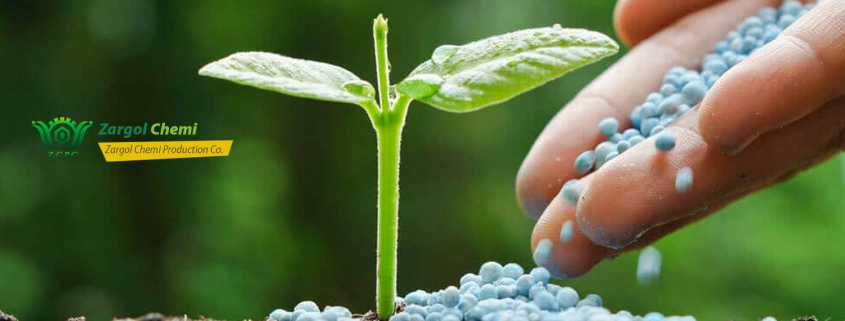Why do plants need fertilizers?
When crops are harvested, important nutrients are removed from the soil, because they follow the crop and end up at the dinner table. If the soil is not replenished with nutrients through fertilizing, crop yields will deteriorate over time.
Careful analyzing and fertilizing of crops enables a chain that provides humans with nutritional food:
- The nutrients feed the soil
- The soil feeds the plants
- Plants feed animals and people
The three most common mineral fertilizers are those based on nitrogen, phosphorus and potassium.
The International Fertilizer Association (IFA) estimate that 85% of the soils globally are deficient in nitrogen(1). 73% of the soils are deficient in phosphorus, whereas 55% lack potassium.
What is fertilizer used for?
Often, the plants have few possibilities to avoid nutrient deficiencies without the help of fertilizers.
Take nitrogen for example: Since plants are not capable of absorbing it from the air directly, the soil is their only means of acquiring this important nutrient. If the soil is low on nitrogen, fertilizers are needed to boost nutritional levels.
Large concentrations of potassium sources occur deep below the soil surface (often around one kilometer) and are far beyond the reach of plant roots. Mining of potassium brings this naturally occurring nutrient to the soil surface and within the grasp of plant roots.
Phosphorus exists in certain rocks, but for plants to access this nutrient, it needs to be water soluble. The correct use of phosphorus fertilizers helps plants absorb it through the soil and ensures a high production and rapid growth.
What is the difference between mineral fertilizers and organic fertilizers?
In nature there are 17 nutrients necessary for plants to thrive. What kind of fertilizer you need, depends on what crop you grow and the nutrient deficits in each specific soil. Different crops remove different amounts of nutrients from the soil.
Many farmers use NPK compound fertilizers that provide a combination of several nutrients at the same time.
Organic fertilizers such as animal waste and compost have been used for centuries and are a valuable source of nutrients and organic matter, which enhances soil structure.
But since the 20th century, mineral fertilizers have been required to meet the increasing food requirements of a growing world population. The amounts of nutrients in organic fertilizers vary and are much less concentrated than those in mineral fertilizers.
Mineral fertilizers reduce the amount needed and the number of vehicles to transport the fertilizing products.
By 2050, the global population is estimated to reach 9.8 billion, according to the United Nations(2). Increasing crop yields is essential if we are going to be able to produce enough food for everyone.
This increase is not possible without carefully planned fertilizing.




Leave a Reply
Want to join the discussion?Feel free to contribute!